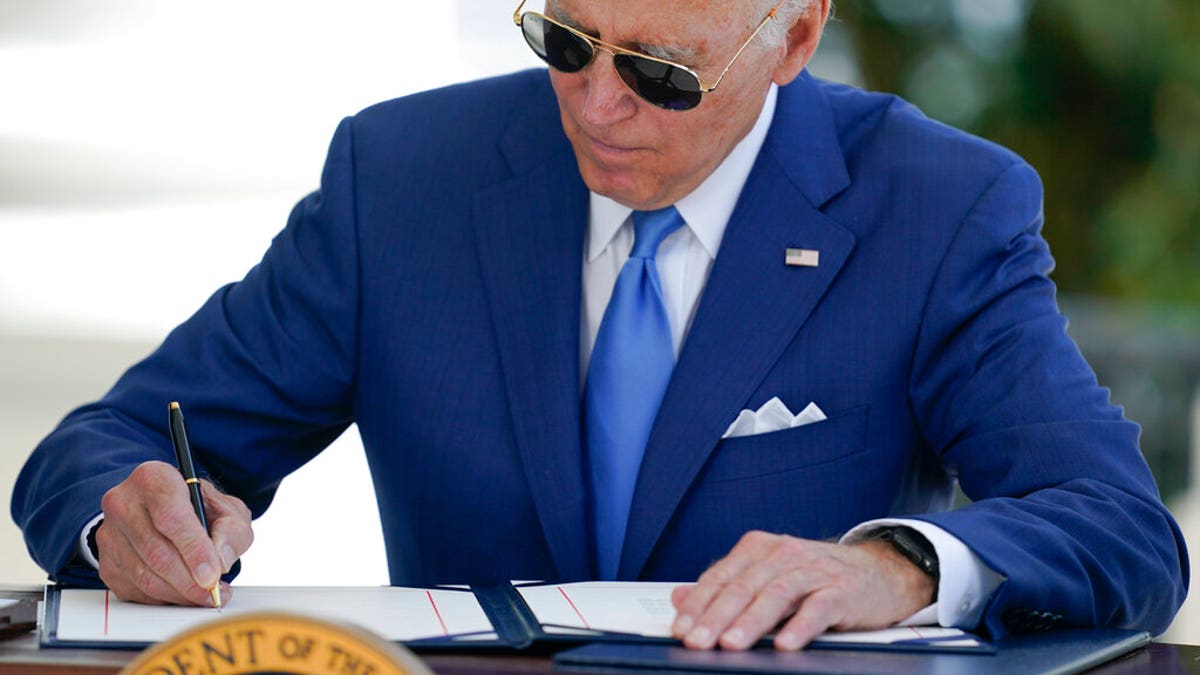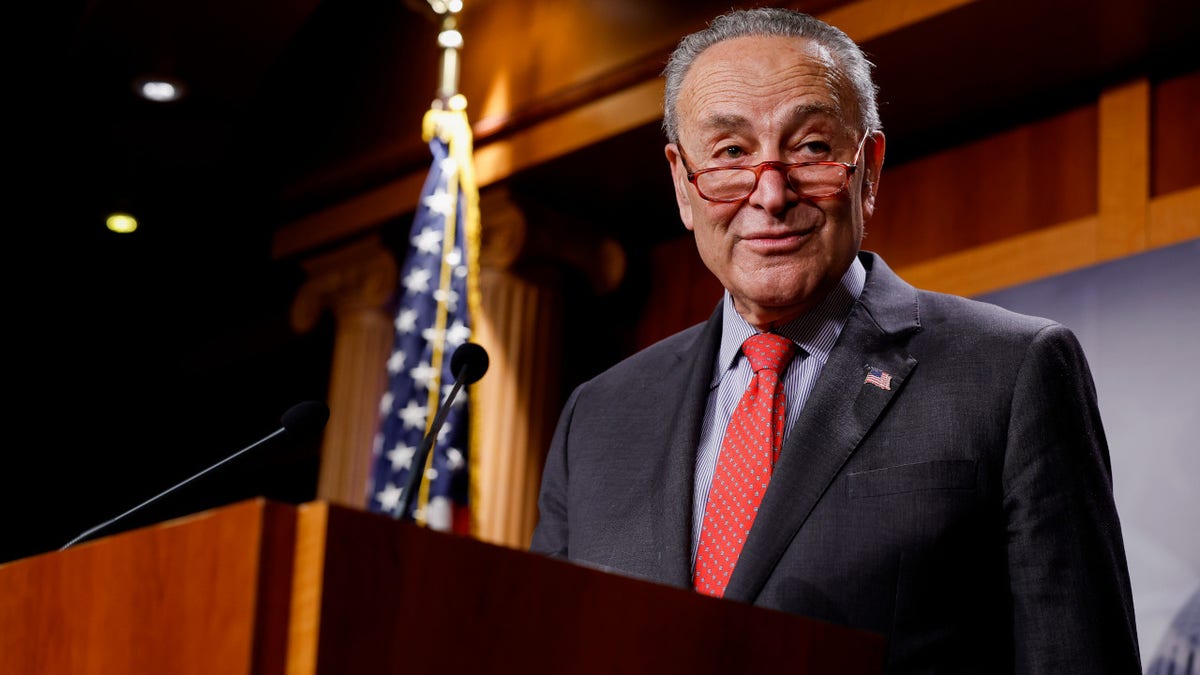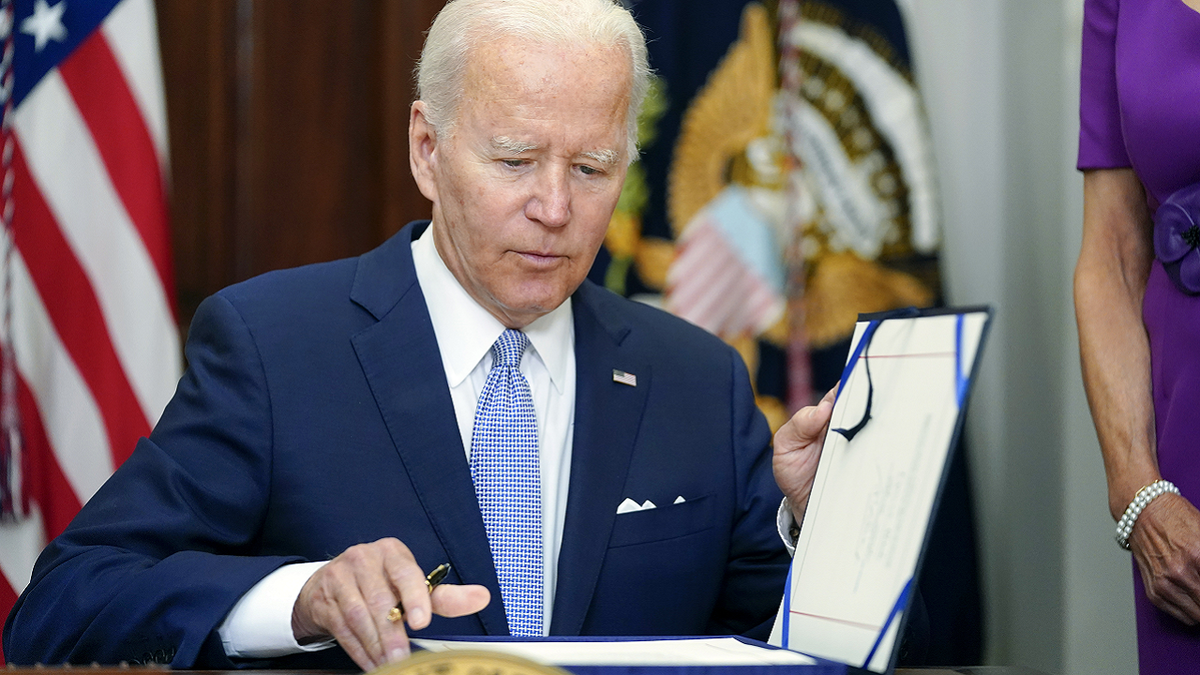Biden says prices will not go up due to inflation, hopes prices will return to normal next year
President Biden discussed inflation and stabilizing the economy at the White House on December 12.
President Joe Biden will sign the Respect for Marriage Act on Tuesday in a ceremony at the White House, enshrining into law the requirement for the federal government to recognize same-sex marriages performed in states where they are legal.
The bill won approval in the House of Representatives with a 258-169 vote, after the Senate passed it, 61-36.
Supporters of the bill have hailed it as a safety net in the event the Supreme Court reverses a ruling that says the Constitution guarantees the right of same-sex couples to get married, but some progressive Democrats say the bill doesn't go far enough and that the religious liberty protections are too limiting to the law.
Washington Post columnist Jonathan Capehart, who married his husband in 2017, said in a column that he supports the bill but admitted that the more closely he looks at it "the more my joy diminishes."
PROGRESSIVES GRUMBLE AS RESPECT FOR MARRIAGE ACT ADVANCES: ‘I HATE THE SENATE BILL’
"What the act does not do is require states to issue marriage licenses in contravention of state law," he wrote.

President Joe Biden will sign the Respect for Marriage Act into law Tuesday, which earned 39 Republican votes in the House and 12 in the Senate. (AP Photo/Evan Vucci, Pool)
The Respect for Marriage Act does not go so far as to require states to permit same-sex marriages, which is what has some progressives disappointed. Instead, it requires the federal government to recognize same-sex marriages performed in states where they are legal.
Katherine Franke, law professor at Columbia University, says the religious liberty exemptions could set a problematic precedent for future civil rights legislation
"What’s worrisome about how the Respect for Marriage Act accommodates religion is not that the exemption will undermine the marriage rights of same-sex couples… Rather, what is troublesome about this broad religious exemption is the precedent it sets, not only for protections for LGBTQ people but possibly for all legislation," Franke wrote in The Nation last week.

Senate Majority Leader Chuck Schumer, D-N.Y., praised the bipartisan efforts in the Senate to advance the Respect for Marriage Act. (Anna Moneymaker/Getty Images)
"Including an explicit religious exemption in a civil rights law—one that is broader than what the law might otherwise already allow—risks inviting the camel’s nose under the tent," Franke said. "Evangelical conservatives will surely use the Respect for Marriage Act as a precedent for including explicit and broad religious exemptions in almost any conceivable law."
But lawmakers have touted the bill as a bipartisan success for securing 12 Republicans in the Senate and 39 in the House.

President Joe Biden to sign the Respect for Marriage Act on Tuesday. (AP/Pablo Martinez Monsivais)
RESPECT FOR MARRIAGE ACT: WHY RELIGIOUS LIBERTY DESERVES PROTECTION AND MY AMENDMENT WILL PROVIDE IT
An amendment included from Sens. Susan Collins, R-Maine, and Tammy Baldwin, D-Wis., which says that the bill does not "affect religious liberties or conscience protections that are available under the Constitution or federal law" or "require religious organizations to provide goods or services to formally recognize or celebrate a marriage," was the key factor in the bill's Republican support.
CLICK HERE TO GET THE FOX NEWS APP
"The entire process was also a vindication of a central premise Senate Democrats and I have embraced this Congress," Senate Majority Leader Chuck Schumer said when the bill passed the Senate. "It’s far better to find a way to pass legislation that will help Americans than to hold show votes that have no hope of becoming law, and that proved true on marriage equality."
























